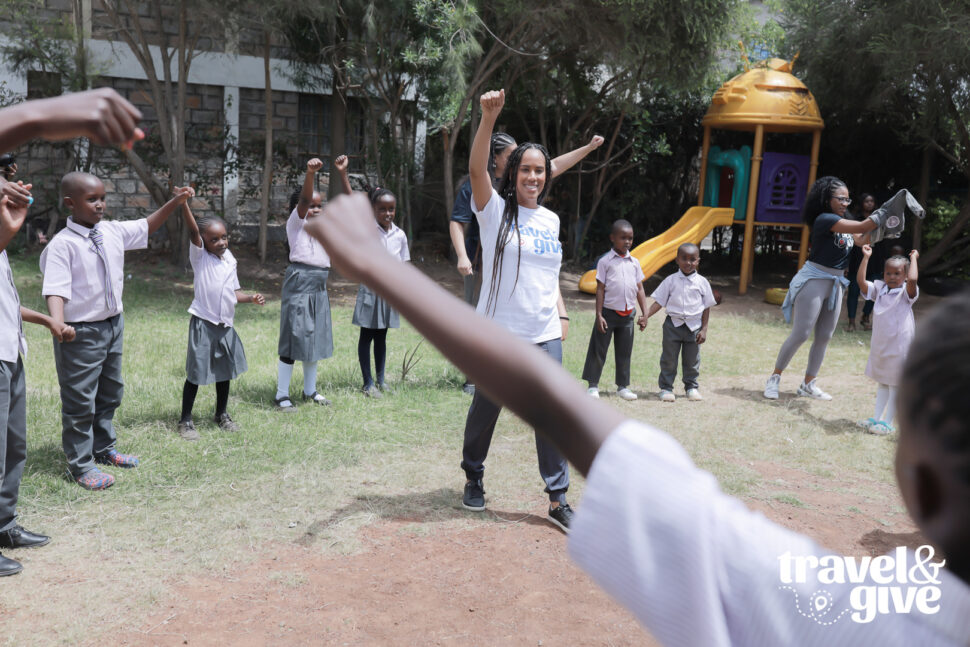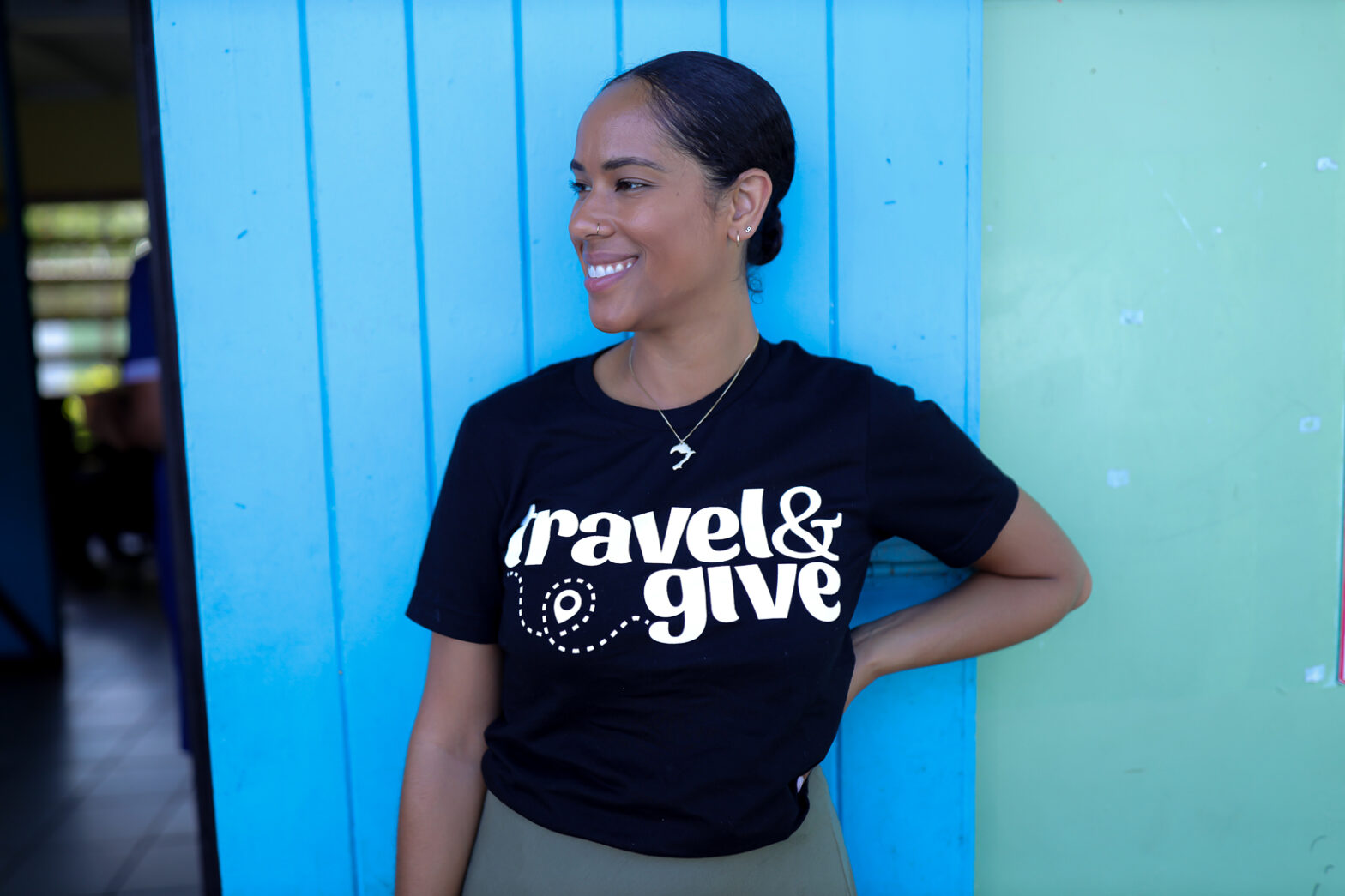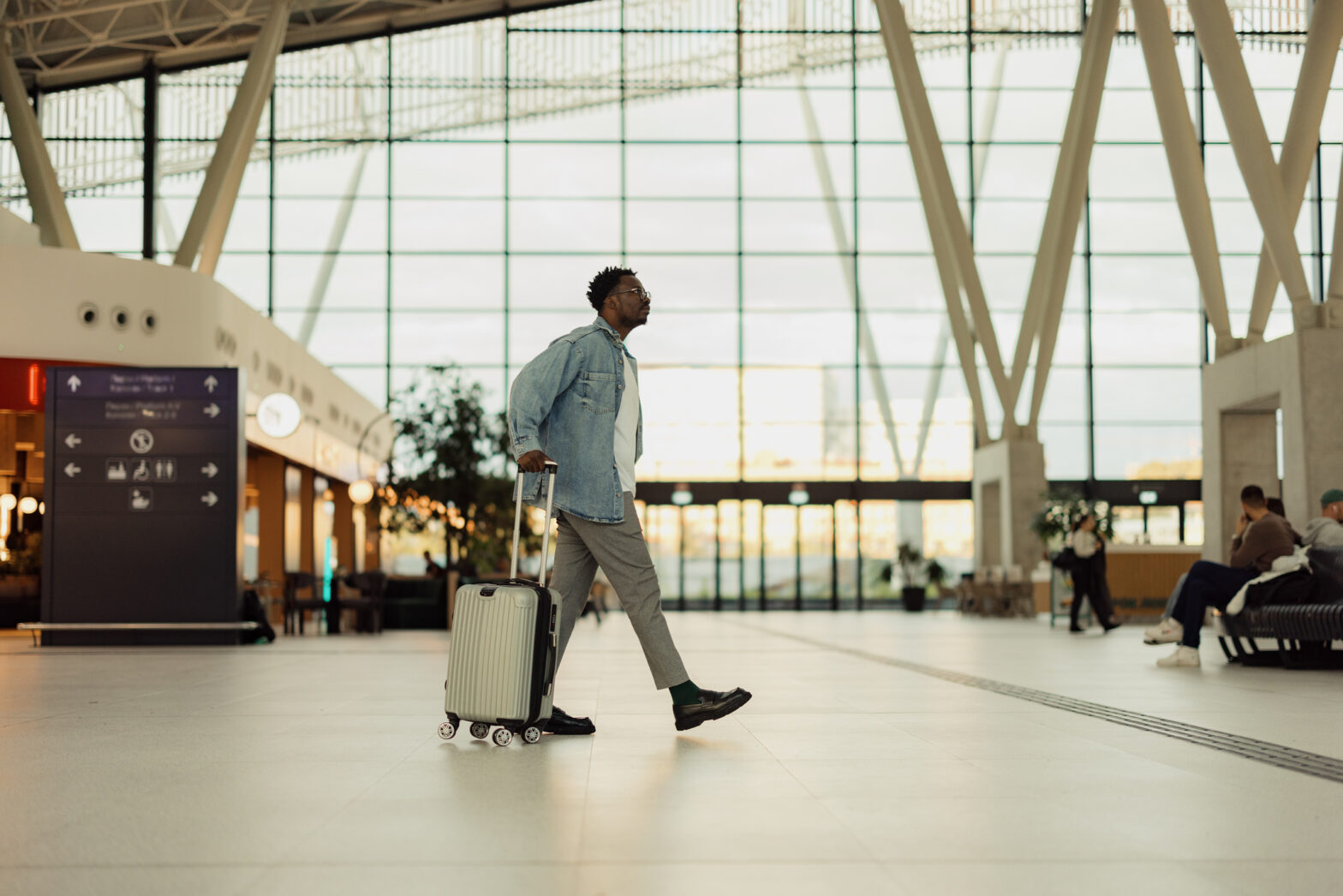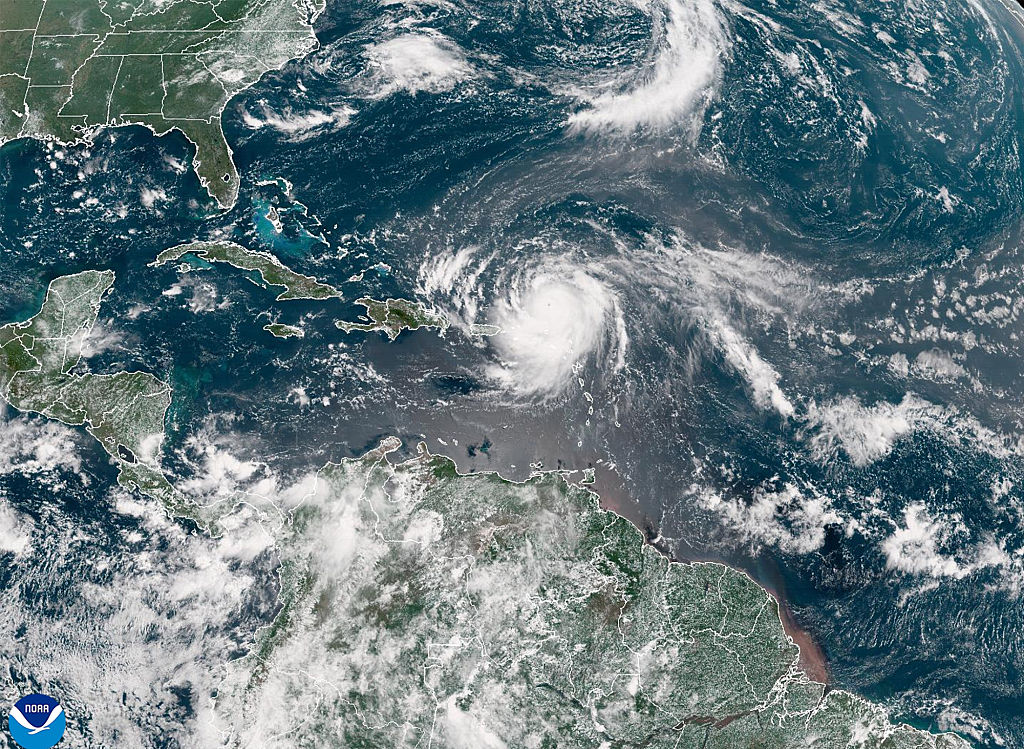Martine Harris, the visionary behind Travel & GIVE, is on a mission to transform the lives of children with disabilities in communities from economically challenged regions. At the heart of this not-for-profit organization lies a commitment to breaking down the barriers and stereotypes surrounding disability.
Travel & GIVE focuses on providing access to high-quality therapeutic services that empower young people from birth to 21 years old. These children grapple with a spectrum of speech, learning, mental, and physical disabilities. Harris’s collaborative approach starts by partnering with like-minded leaders in the countries they serve, aligning their shared goals to create a brighter, more inclusive future for children with disabilities. Harris’s work through Travel & GIVE reflects a commitment to making the world a more inclusive place.

TN: What inspired you to create Travel & GIVE, and how did the idea come about?
Martine Harris: The mission of Travel & GIVE chose me, due to my life experiences of being of Haitian-American descent, my love for travel, and growing up with a cousin with a disability. My passion for disability advocacy started when my parents became legal guardians of my cousin, Jean-Bernard (aka JB). He moved to the US from Haiti because of the lack of resources available for him because he was deaf.
When he moved in, the community’s kids would comment or ask funny questions like, “How can JB ski? He’s deaf!” “Wow, I never knew a deaf person could play basketball so well.” Over time, I learned the best way to deal with these questions was to let people get to know him. I would bring a notebook and pad everywhere we went. Then instead of responding for JB, I would have people engage with him. Before we knew it, JB was the town’s star and loved by all. JB passed away when I was 16 years old, and a piece of my heart has been missing ever since.
At the age of 22, I graduated with a major in Speech-Language Pathology and a minor in Early Childhood Education. Then I accepted a position as an English teacher in Haiti. On the first day, a student asked me, “Why did you come from the US to teach at a school for dumb kids?” I couldn’t understand why a child would speak of themselves like that. Within the first week, I learned most of my students were kicked out of private schools because they were “stupid.” Simply because they learned differently and didn’t have the support in the classroom to help them achieve.
TN: Can you explain the core mission and values of Travel & GIVE and how they guide your business operations?
MH: Our goal through Travel & GIVE is to dispel the stigmas around people with disabilities. [We also] provide access to quality therapeutic services for underdeveloped communities. In the initial process of creating a partnership, we collaborate with in-country like-minded leaders. Our initial discussions with potential partners explored their perspectives on disability inclusion. [We wanted to] gain an understanding of their existing support programs for individuals with disabilities. Then identify any gaps within their systems through our in-country workshops or telehealth program.
TN: What types of initiatives have Travel & GIVE been involved in to make a positive impact?
MH: We are currently running two ongoing programs. Namely, our in-country workshops and TAG’s telehealth program, which launched in Nairobi this past March. In-country workshops involve professional volunteers with diverse backgrounds in special education, speech pathology, occupational therapy, and mental health. Volunteers conduct in-person workshops with topics such as special education, the creation of inclusive environments for individuals with developmental delays, and strategies to identify and implement within classroom settings. These workshops are designed for parents, teachers, therapists, and community leaders. [They] are made possible through collaboration with our partner organizations. We have successfully organized workshops in Haiti, Kenya, and Jamaica.
In March 2023, Travel & GIVE introduced its Telehealth program, marking a significant milestone in our mission to support individuals with disabilities. Through this initiative, we established a partnership with the Almasi School in Nairobi, Kenya led by Sophia Musyoka. This school stands out as one of the few schools with a specialized special education and inclusive program.
Within the framework of the Telehealth program, we have licensed speech pathologists overseeing our dedicated therapy aide, Catherine Njeru, who has a background in Psychology and is based in Nairobi. Catherine conducts weekly visits to the school, where she delivers individualized communication therapy to a group of 10 students. These therapy sessions are carried out under the expert supervision of a Travel & GIVE licensed speech pathologist, and led by our Speech-Pathologist Team Lead, Tamara Easley. Our projects have a meaningful impact, providing information and services that are not readily available in these regions.

TN: What types of destinations does Travel & GIVE specialize in, and what can customers expect when booking with your company?
MH: With Travel & GIVE, we aren’t spending our entire trip at luxury hotels and resorts. It’s important that volunteers learn the history and get an understanding of the culture of the people we are visiting. In Haiti, we would spend the first few days at a local boutique hotel in the mountains of Thomassin, and patronize local restaurants and markets in the evening. It was a must that we visit the Musée du Pantheon National Haïtien. [It] features the heroes of the independence of Haiti, Haitian history, and culture. While in Nairobi, volunteers have the option of visiting local markets and museums, Giraffe Manor, a tea farm in the mountains, and the Elephant Orphanage guided by local tour guides.
TN: How do you select and collaborate with the local organizations and communities in the destinations you serve?
MH: In Haiti, it was very easy. My family is from there and I lived there. I had an idea of the needs when it came to education. I partnered directly with the school I worked at and knew people who connected me with local orphanages that housed children with disabilities who were abandoned by their families or communities.
As for Kenya, that one fell in my lap. I met a gentleman who knew the owner of one of the four schools in Nairobi that has an inclusive general education program. When it came to Jamaica, I contacted an organization called Skilled Connections. They connected me directly to the ministries of Health and Education in Kingston. I always have an initial meeting where I present what Travel & GIVE offers, and offer our support in areas they determine is needed.
TN: What are some of the challenges you’ve encountered in blending travel with social responsibility? How have you addressed them?
MH: During our first service trip to Haiti, I failed to effectively convey the living situation in Haiti. Given my familiarity with limited access to a generator, cold showers, [actually enjoying] evening power outages and limited access to AC, I overlooked communicating these aspects to our volunteers. Unfortunately, this led to a situation where the volunteers began complaining and making demanding requests for access to electricity, hot water, and AC. I attempted to reiterate our core mission at Travel & GIVE, which was centered on our purpose in Haiti.
Regrettably, this particular trip concluded with a great deal of disappointment and emotional strain. From then on, the TAG core team underwent a complete reevaluation of our approach. We chose lodging in Thomassin, an area known for its consistently pleasant temperatures, eliminating the need for a generator. I began clearly communicating to volunteers that this isn’t a vacation; access to electricity and hot water might be limited during our trips. I emphasized that volunteering with Travel & GIVE is not just about volunteering but also a cultural experience. We explore local markets, dine at neighborhood restaurants, climb the mountains of Furcy to hang out with locals and immerse ourselves in the local way of life. While we still conclude our trips with a two-day vacation at one of my preferred coastal resorts, the majority of our itinerary focuses on local experiences.

TN: Could you share some success stories or testimonials from travelers who have experienced the transformative aspect of your trips?
MH: I take pride in knowing that many of our travelers’ first time going to Haiti was with Travel & GIVE. The feedback has always been positive about the beauty of the people, land, and culture, despite how the media portrays Haiti. Even today, I continue to receive messages from travelers who joined our early trips to express their gratitude for the unforgettable experiences they had in Haiti through Travel & GIVE.
TN: How do you measure and communicate the social and environmental impact of Travel & GIVE’s initiatives to your customers?
MH: We use a combination of approaches to measure and communicate the impact of Travel & Give initiatives to our customers. For the telehealth program, we use Progress Tracking and Reports. We collect data to monitor and measure the progress of the students’ success toward their individualized goals. Our licensed speech pathologists prepare progress reports that document students’ progress toward their individualized goals. These reports are shared with the school and the student’s parents, offering clear insight into the impact of our programs.
For the workshops, we use Feedback Forms where we actively seek feedback from attendees. Participants respond to questions related to what they knew before the workshop, what they’ve learned, and how they intend to apply this knowledge. This feedback helps us get an idea of the immediate impact of our initiatives and understand the changes in awareness and understanding among our participants, and next steps.
TN: What exciting developments or future projects can we expect from Travel & GIVE in the coming years?
MH: We’ve recently onboarded two exceptional mental health volunteers, Anne-Kenya Dubuisson and Nyeesha Williams. They are currently in the process of developing a program set to launch in January 2024. [The program] aims to provide monthly mental health support to parents and teachers of children with disabilities in Nairobi, Kenya.
This initiative holds particular significance for us. For the past six years, our focus has been primarily on working directly with students and providing therapeutic strategies to both staff and parents. However, we haven’t yet directly addressed the emotional challenges associated with caring for a person with a disability.
During our visit to Kenya earlier this year, we had an eye-opening experience during a heartfelt circle time conversation with parents. Many of them shared tears as they discussed the day-to-day fears and challenges of caring for loved ones with disabilities. This emotional encounter highlighted the urgent need for the mental health support program we are now developing. It reinforces our commitment to addressing the holistic well-being of the individuals and families we serve.





